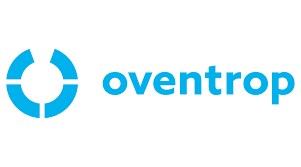
Energy-efficient construction and renovation for more climate protection
The demands that the German Buildings Energy Act (GEG) places on residential companies in Germany are growing all the time, creating significant challenges for construction projects.
Achieving climate goals means taking action quickly. In order to meet minimum standards, which themselves are constantly increasing, the energy efficiency of products has to be one of the key factors considered in planning and decision-making processes in the housing sector. While it is important to acknowledge the pressure to renovate existing buildings using fast, eco-friendly methods, the challenge for the property sector lies in maintaining a sense of proportion and foresightedness when evaluating the right efficiency measures for the project in question. There is a balance to be struck between using methods that prioritise climate protection and creating affordable places to live.
https://www.kermi.com/en/de/indoor-climate/solutions/industry-solutions/housing-sector/wowi-climate/

The revolutionary worksurface, ECO by Cosentino is composed of 75% recycled raw materials, including salvaged mirrors, glass from windows and bottles as well as porcelain from china, tiles and sinks. Achieved through state-of-the-art technology, the worktops are extremely durable with a high stain, scratch and scorch resistance.
ECO By Cosentino in White Diamond
The recycled content is mixed with other materials including stone waste and is bonded together with a part eco-resin, which contains 22% corn oil. This pioneering resin is the result of a major research and development initiative, and is unmatched in the market today.
By reusing recycled materials, Cosentino is “upcycling” products that have reached the end of their lifecycle – meaning that they cannot be incorporated in to any other industrial product and would otherwise collect in landfill sites. Re-using this huge amount of material prevents it from building up at landfills year after year, and reduces the need to mine for new resources.
https://www.cosentino.com/en-gb/news/eco-by-cosentino-the-revolutionary-recycled-surface/

A second life for recycled PET bottles
The felt-like material of MUSE is made from 50% recycled PET. The material is precision formed and combines three key advantages: inherent stability, high acoustic effectiveness and a high surface quality that is pleasant to see and touch. As a result, MUSE both generates a beneficial level of well-being while combining a high degree of environmental responsibility. Discreet classic or modern look. Available with two neutral and two accent colours, MUSE can integrate into any office design concept.

Our industry is experiencing rapid upheavals due to changing processes, constant innovations and increasing digitalisation. We are tackling these tasks and developing further: We start the New Year 2021 with a product and service offensive – and present ourselves with a new brand identity.
What does that mean in concrete terms? With our modular product and service solutions, we are now even closer to you as a real problem solver. You can find the right system solution quickly and easily on our new website and in our new catalogue – and can concentrate fully on your work. And if you need support with planning and design, our experts are there for you. Because what remains despite changes: We are your reliable and personal partner for efficient heating, cooling and clean potable water.
https://www.oventrop.com/en-IE/companynews/brandoventrop

A more Sustainable, Functional and Beautiful life.
Mission
we create innovative, sustainable, durable and energy-efficient products, which provide added value and set us apart from our competitors. from highly durable radiators finishes made from recycled or recovered materials to energy-efficient, radiators
Values
Inspired by the values that we all share, to create products of the highest quality in every way: beautiful, functional, and environmentally friendly. We implement our Ecodesign philosophy throughout the entire value chain: from the sustainable procurement of raw materials through the production process to the end of the useful life of the product.
